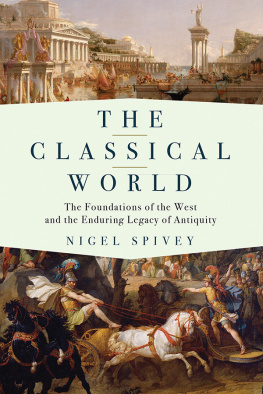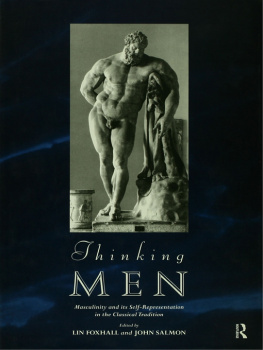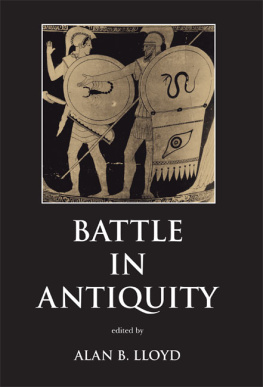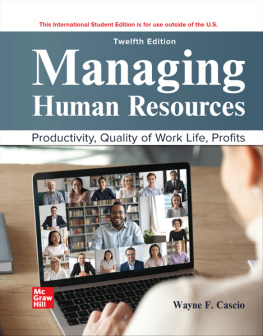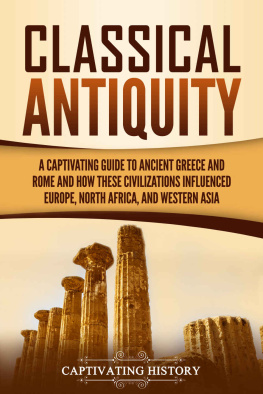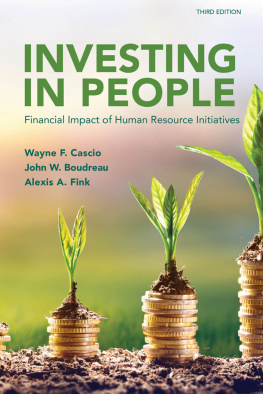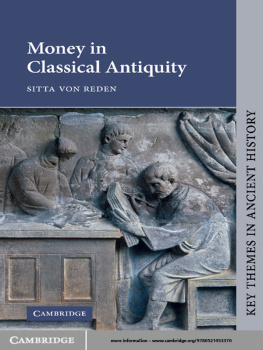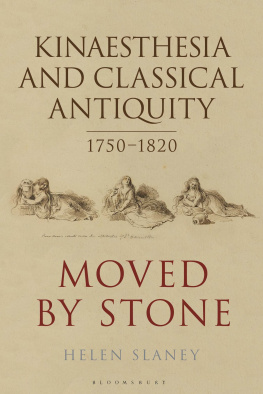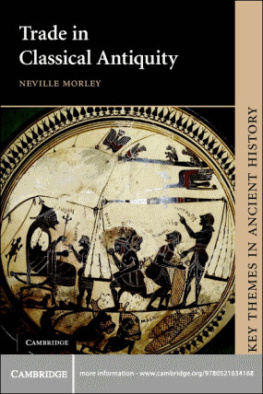PREFACE
The papers published in this volume were originally prepared for and presented at the B1 session on Production and public powers in antiquity of the Eleventh International Economic History Congress held at Milan in September 1994. Some of the papers remain as they were when printed for circulation before the Congress, others have undergone some revision, and two appear here in full for the first time, as does a written version of the observations of one of our rapporteurs. We regret the tardy appearance of this volume, held back first by the fruitless wait for some other promised contributions, and then delayed by the editors other commitments. The papers together still make an unusually broad, varied and fresh examination of an issue which remains fundamental to ancient economic history.
We are grateful to Professor Daniele Foraboschi for his hospitality to our group in Milan, to the Cambridge Philological Society for publishing this volume, as it has the ancient history papers from the Seventh to Ninth Economic History Congresses. We thank the Dr M. Aylwin Cotton Foundation for a generous subsidy to the costs of publication, and the Dipartimento di Discipline Storiche Ettore Lepore, Universit degli Studi di Napoli Federico II, for its financial contribution.
E. Lo C.
D. W. R.
December 1999
I
INTRODUCTION
The theme of these papers, the influence of public powers on production in classical antiquity, has been central to the lively debate between historians since the original publication of The Ancient Economy by Moses Finley in 1973. Earlier historians of antiquity, especially in the interwar period, had with few exceptions persisted in a modernising approach which assumed that ancient states had economic policies, and interpreted them as consciously liberal or dirigiste. Finley denied that it was possible to attribute a deliberate economic policy to any ancient state, although he admitted the existence of an infinite room for state intervention due to the overwhelming power of the state over the individual. Hence he made a characteristically rigorous distinction between non-interference and the consistent, conscious, adoption of a theory of laissez-faire, which, in his view, did not exist in antiquity any more than any other theory existed. Indeed, Finley denied that any ancient state had ever taken any measures for reasons of economic policy. His key concept for interpreting the actions of ancient states in the economic sphere was the satisfaction of material wants, that is the Bedarfsdeckung of Sombart and Weber applied to state organisations, and in his view the only field in which there was significant, regular, intervention by the state was the supply of staple foodstuffs to the major urban centres of population.
The influence of The Ancient Economy on the direction of subsequent historical thought can hardly be overstated. In more recent years, however, the Finleyan new orthodoxy has undergone a number of critical re-evaluations. As regards the problem of the role of the state in ancient economies, some of Finleys more extreme claims have elicited challenges. Furthermore, beyond the question of the existence or not of coherent (and, more or less, coherently followed) economic policies, designed to organise and direct production or to influence it incidentally or structurally through monetary and fiscal instruments or public expenditure, there still remains the problem of assessing the impact of the state on production independently of the specific aims which any political organisation may have set itself. The papers published here are directed precisely to this problem, without being necessarily constrained by the question of the motivation behind the actions of public powers. The original intention was to conduct the investigation on two analytically and thematically distinct tracks, with separate papers for each. The first track would follow specific intervention by the state in production, including regulation of production; that is, direct intervention and the establishment of rules for the functioning of productive forces by fixing their institutional conditions. The second track would traverse the economy as a whole to assess the impact of the mere existence of the political organisation, with its need to finance expenditure for its own survival, on the structural allocation, in geographical and social terms, of resources, and on production in general, including its short- and long-term variations in other words, it would follow a macro-economic perspective.
Originally the papers of Sallares, van der Spek, Rathbone, Schneider, rsted and Bagnali were intended to examine direct intervention in particular periods and areas of ancient history, while indirect influence in these periods and areas was to be covered in the papers of Ampolo, Foraboschi, Andreau, Lo Cascio and Banaji. Inevitably, contributors reacted variously to the brief. Some found the distinction between direct and indirect intervention difficult to implement for their period and area. Some adopted a broad, thematic and long-period approach, while others chose to focus on specific topics as illustrations of general points. In the end, it seemed best to regroup the papers here in chronological order, adding in Austins elaboration of the comments he made as one of the rapporteurs at Milan.
The papers do not follow any set formula. The differences between them spring from multiple roots: the evidence available for the particular area, period or topic; the different natures of the societies and political systems under review, and their different geophysical backgrounds; and the different intellectual traditions of studies in each field and the particular interests and approach of each contributor. We see this plurality as an advantage, not a problem. When looking at over a millennium of history across and beyond the Mediterranean basin, it seems more appropriate to think in terms of ancient economies rather than one ancient economy. But all the papers, however different in content and approach, are firmly directed to the same questions. Taking them together, while significant differences and variations emerge, it is possible to identify some structural realities and some trends of development which were common to different societies and periods of the ancient Graeco-Roman world.
All the societies discussed had economies which were based on agriculture, yet while the extent and location of surplus production, non-agricultural production, trade and monetisation varied greatly, all were in some sense dynamic economies, open, potentially, to the effects of intervention or influence by public powers. It is suggested that the city-states of archaic and classical Greece lacked sufficient powers, both domestically and in facing external pressures, to have much effect on production (Sallares, Austin). Nonetheless, they did exert influence where they thought it politically essential and possible, above all in trying to ensure some social balance in landownership and some security in the supply of basic foodstuffs (Ampolo, Austin). The extent, however, to which monetisation and taxation in cash can be regarded as indirect stimulants to production of an agricultural surplus is disputed (Sallares, Ampolo, Austin). Although the Finleyan ancient economy seems to retain considerable force as a model for the Greek city-state, some areas of activity by public powers, notably regulation of landownership, a certain interest in imports and exports, and the production of coinage, prefigure later more clearly influential developments.




